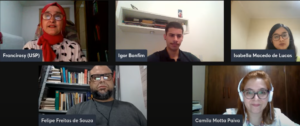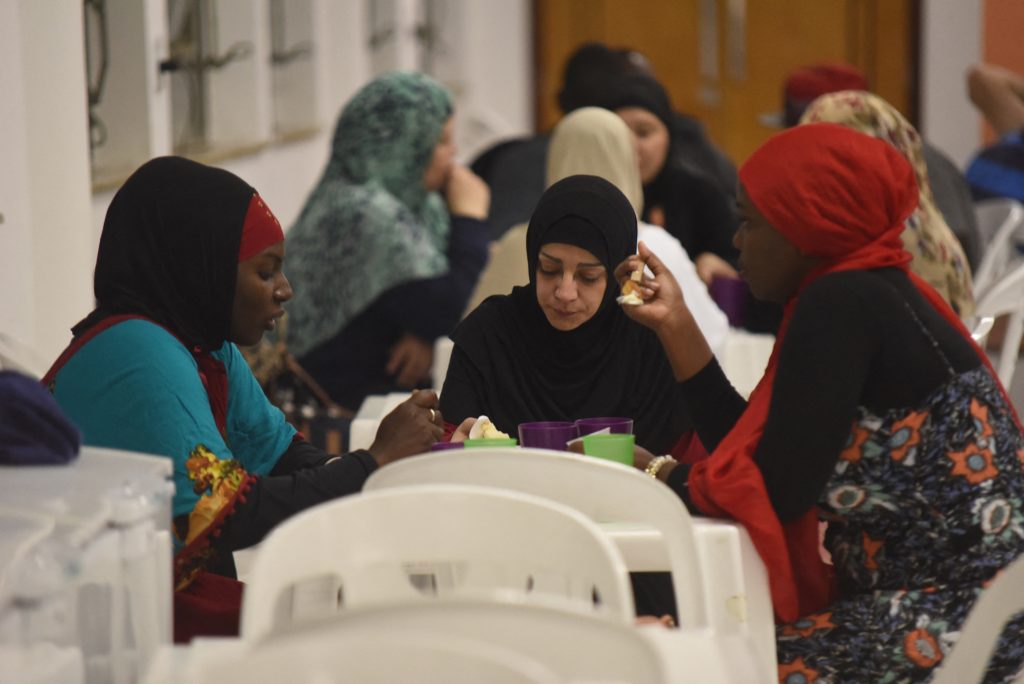São Paulo – The streets were identified as the environment where Muslim women suffer the most prejudice in their daily lives in Brazil. Data was collected in the 1st Report on Islamophobia in Brazil, presented this Monday (21) at the International Seminar on Islamophobia. Pictured above, Muslim women gather during Ramadan in Rio de Janeiro.
According to the survey, 72.9% of Muslims reported public spaces are the primary location of this violence. Next are workplaces, schools and universities, and domestic spaces. “The street is the most dangerous place for women,” pointed out researcher Francirosy Campos Barbosa, who coordinated a study.

The research work was developed over a year and resulted in over 100 pages of study. The report is available free of charge on Ambigrama’s website here.
In addition to Barbosa, researchers Felipe Freitas de Souza, Isabella Macedo de Lucas, Igor Henrique Bonfim Carlos, and Camila Motta Paiva also participated in the presentation of data. “For me, as a Muslim, [the research process] was very difficult because some things felt like they were being said to me. So the work of these researchers helped me not to be in contact with this violence all the time. Because that’s what Islamophobia is all about, violence,” Barbosa pointed out.
Read also:
The study heard people born into Islam and reverts, a term for those who were not born to Muslim families but later adopted the religion. The group of reverts faces some challenges of its own, according to the study. “There is a distancing from the circle of friends and family for the reverted women, mainly due to the changes in food and clothing,” said Paiva.
Among reverted men, however, Islamophobia happens mainly in the workplace. “Of those reverted, 54% have already suffered embarrassment,” pointed out Carlos.
In addition to reports on physical spaces, researcher Felipe Freitas de Souza recalled even online Islamophobia needs to have its effects studied. “On social networks, there is the issue of aggressors being anonymous. There are also publications reactive to Muslims. There are responses, but there are also spontaneous attacks generally arising from what we identify as a trigger effect, a local or international event that triggers online reactions. The case of 9/11 is one of them,” said Souza.
The research coordinator highlights the importance of decolonizing the view of the Muslim religion. “How much Islamic aspects were and are colonized,” she said. “Another important fact is the issue of the media. It is pointed out as the one that can and does end up generating Islamophobia because it often does not speak with the researchers themselves or those who understand that reality,” concluded Barbosa.
The presentation of the 1st Report on Islamophobia in Brazil took place online and is part of the Graduate Program in Psychology of the Department of Psychology of the Faculty of Philosophy, Sciences, and Languages of Ribeirão Preto (FFCLRP) of the University of São Paulo (USP) and the Anthropology in Islamic and Arab Contexts Group (GRACIAS). The full presentation (in Portuguese) is available here.
Translated by Elúsio Brasileiro




